I am a TA. One of my students reported me
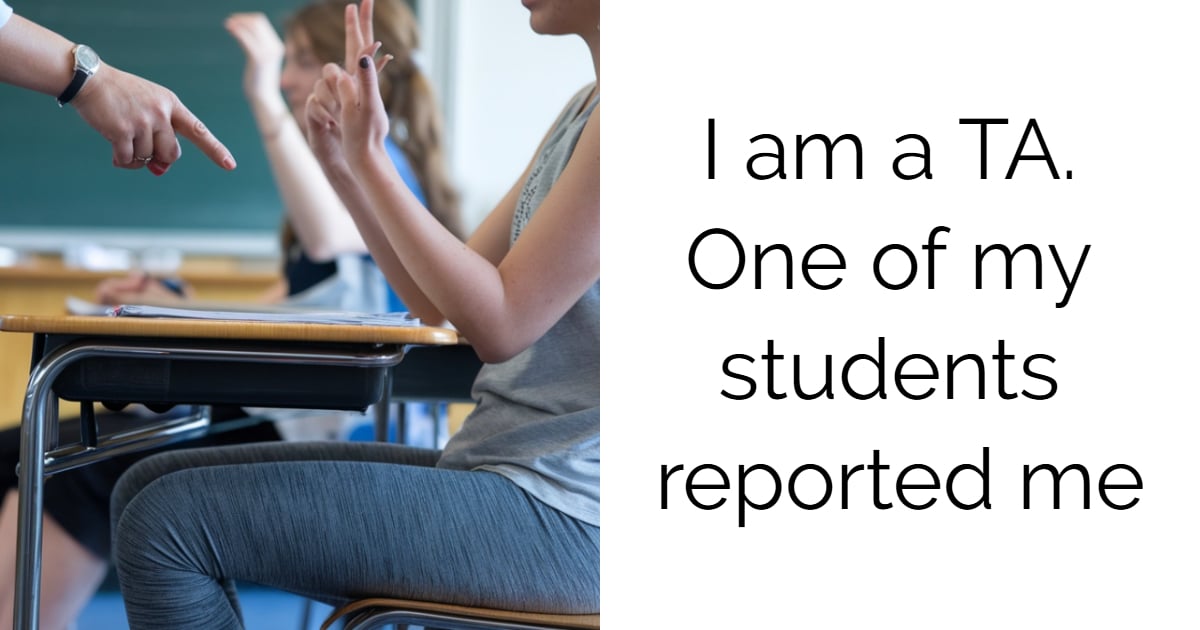
Teaching assistants (TAs) are there to guide students academically—not to serve as emergency mental health counselors. But what happens when a struggling student turns a routine lab session into a full-blown crisis?
That’s exactly what OP (TA for an organic chemistry lab) experienced when one of their students, already struggling with punctuality and lab safety, broke down in front of the class. After making self-harm statements and walking away, she later reported OP to the professor, and now OP has a meeting about the situation.
So, did OP handle it appropriately, or could they have done something differently?
‘I am a TA. One of my students reported me’


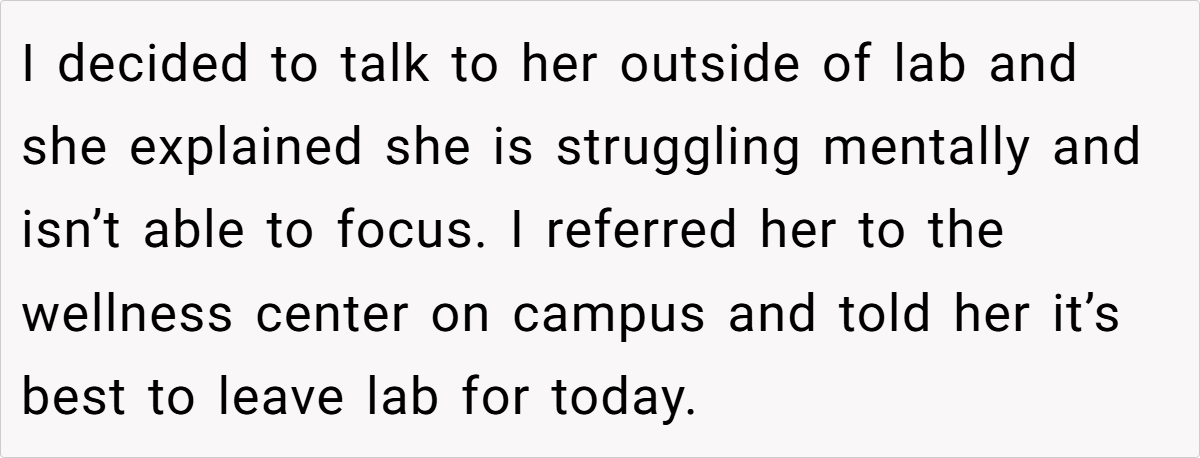



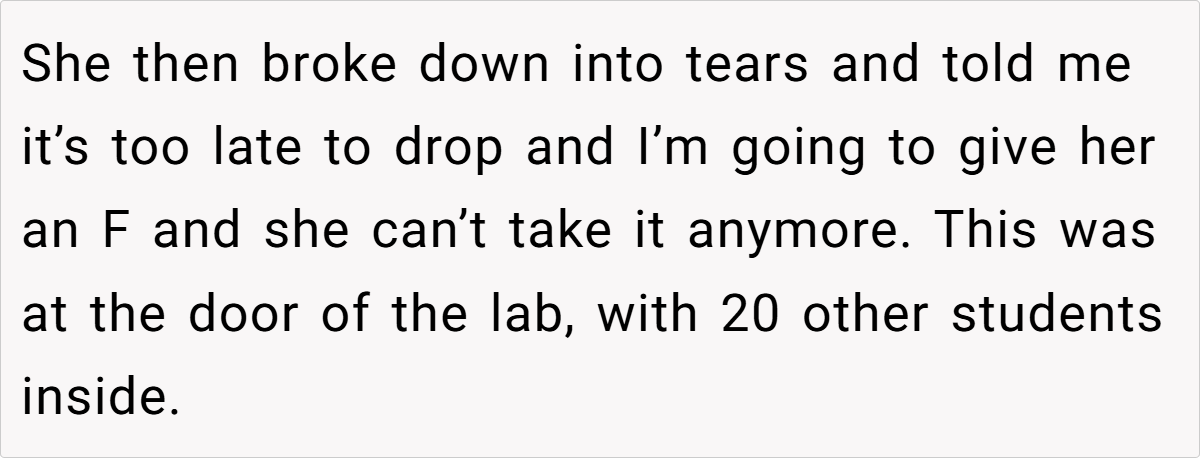
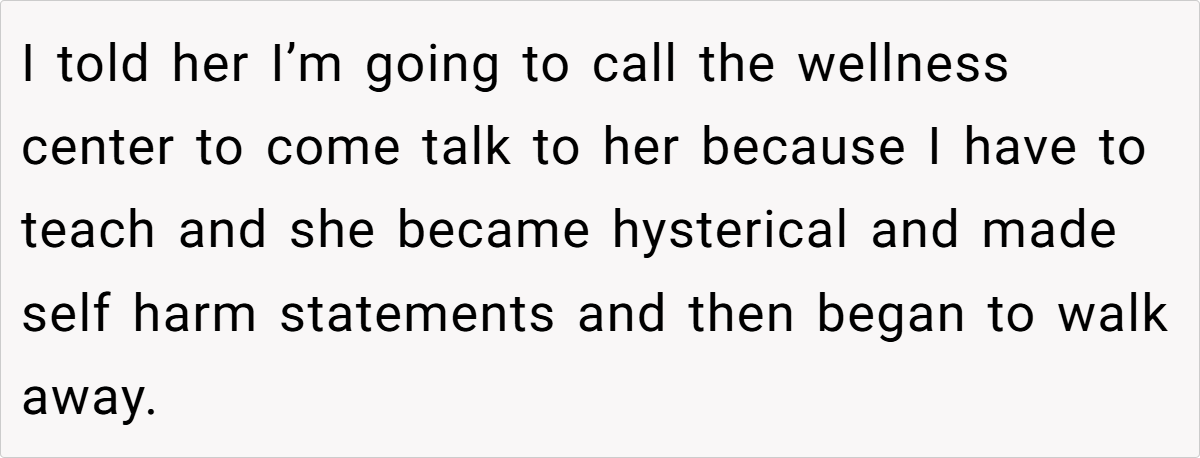

Expert Analysis:
The Role of a TA: Where Responsibility Ends
TAs hold an important role in academic settings, but they are not trained mental health professionals. Their primary responsibilities include:
- Ensuring a Safe Lab Environment – Enforcing safety regulations is non-negotiable. Lab dress codes, punctuality, and proper conduct are legal requirements, not flexible guidelines.
- Maintaining Professional Boundaries – While offering support is encouraged, TAs are not therapists. They are not obligated to handle personal crises beyond making appropriate referrals.
- Following Institutional Protocols – Universities have strict policies for handling mental health crises, and TAs must defer to those protocols rather than trying to intervene themselves.
OP did exactly what they should have: referred the student to campus wellness resources and attempted to de-escalate the situation without compromising lab safety or their own responsibilities.
The Importance of Mandatory Reporting
A key issue here is the self-harm statement the student made before leaving. In many educational institutions, TAs (especially those in teaching positions) are considered mandatory reporters, meaning they are legally required to report any concerns regarding a student’s well-being.
According to the National Association of Student Personnel Administrators (NASPA), university faculty and staff must follow specific guidelines when students display signs of crisis, including:
- Immediate reporting of threats to self or others
- Documenting the incident with timestamps and facts
- Directing students to professional resources rather than offering personal advice
By calling the professor and referring the student to wellness services, OP followed best practices. However, the key takeaway here is: Did OP file an official report about the self-harm statement? If not, this could be why the meeting was called—to ensure proper reporting protocols were followed.
What OP Should Expect in the Meeting
The meeting with the professor is unlikely to be disciplinary—it’s more about ensuring that OP handled the situation correctly and discussing any gaps in protocol. Here’s what OP can do to prepare:
Document Everything – OP should bring a written summary of what happened, including dates, times, and the steps they took.
Ask About Mandatory Reporting – Clarifying whether they should have escalated the self-harm statement further will show professionalism.
Remain Professional & Neutral – The meeting is about policy, not personal blame. Keeping emotions out of it will help OP navigate the conversation smoothly.
Lessons Learned & Moving Forward
- TAs Are Not Mental Health Professionals – OP handled the situation by referring the student to the appropriate campus resources, which was the right call.
- Mandatory Reporting is Crucial – If self-harm is mentioned, it must be formally reported. This ensures the student gets the help they need and protects OP from liability.
- Always Document Incidents Immediately – Keeping a record of student crises, including dates, times, and actions taken, can prevent misunderstandings in the future.
- Meetings Aren’t Always Negative – While being called into a meeting can feel stressful, it’s often a procedural step rather than an accusation. OP should use this as an opportunity to clarify expectations.
The Internet Reacts: Reddit’s Take
The majority of Redditors agreed that OP handled the situation well. Many emphasized that the meeting is likely a formality, ensuring the school covers its bases in case the student’s condition worsens. Others suggested that OP should always document incidents immediately to protect themselves.
A few users who work in education advised OP to stay calm in the meeting, not over-apologize, and clarify what the university expects from TAs in similar situations moving forward.
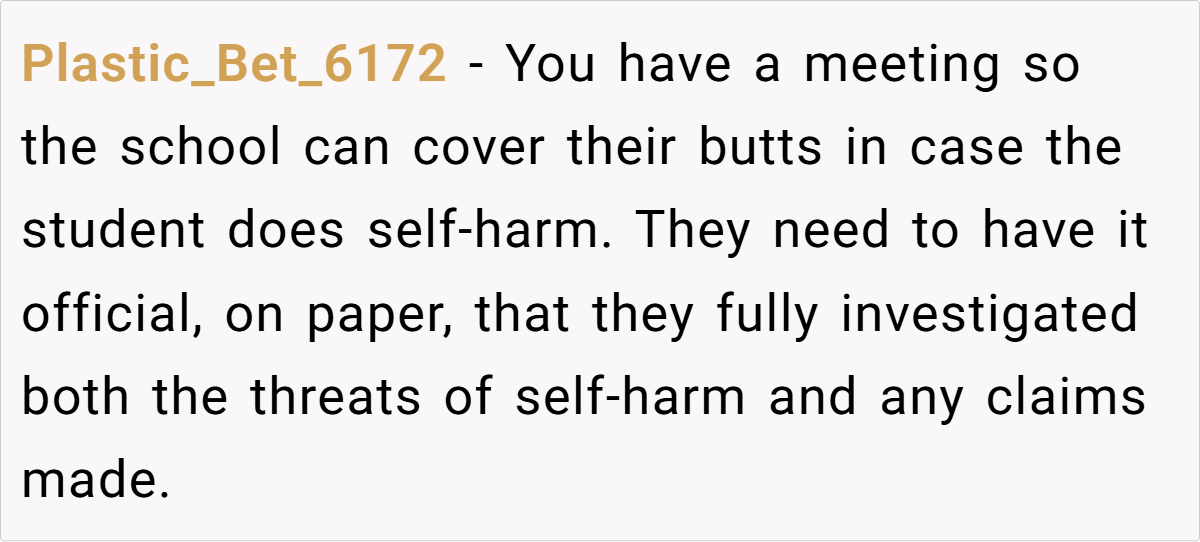
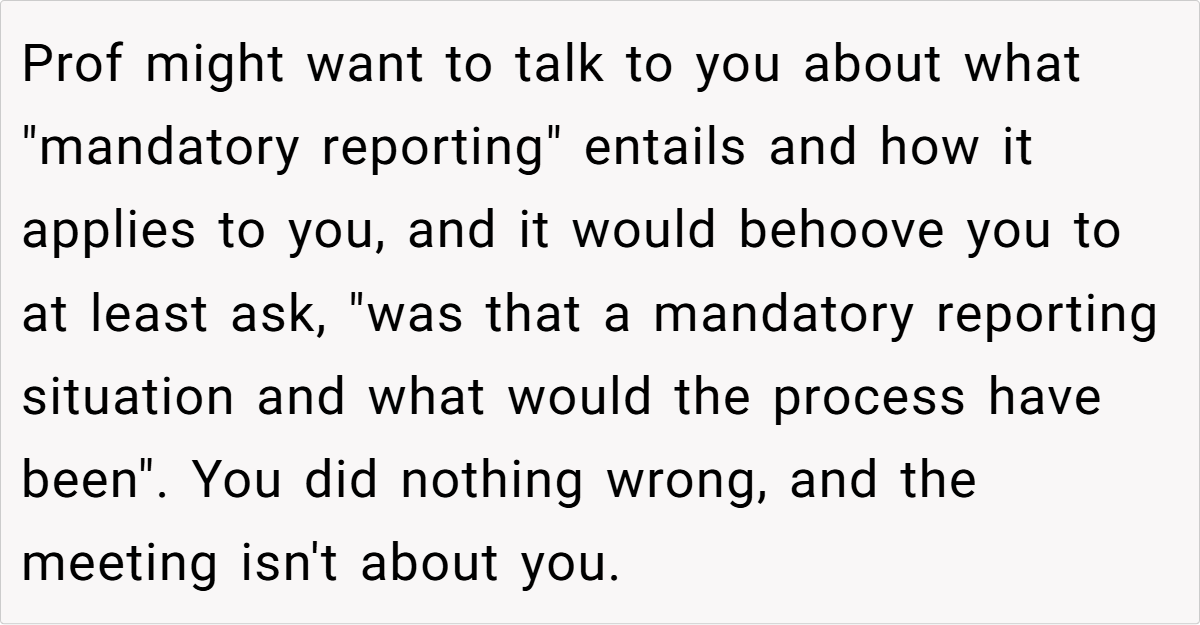



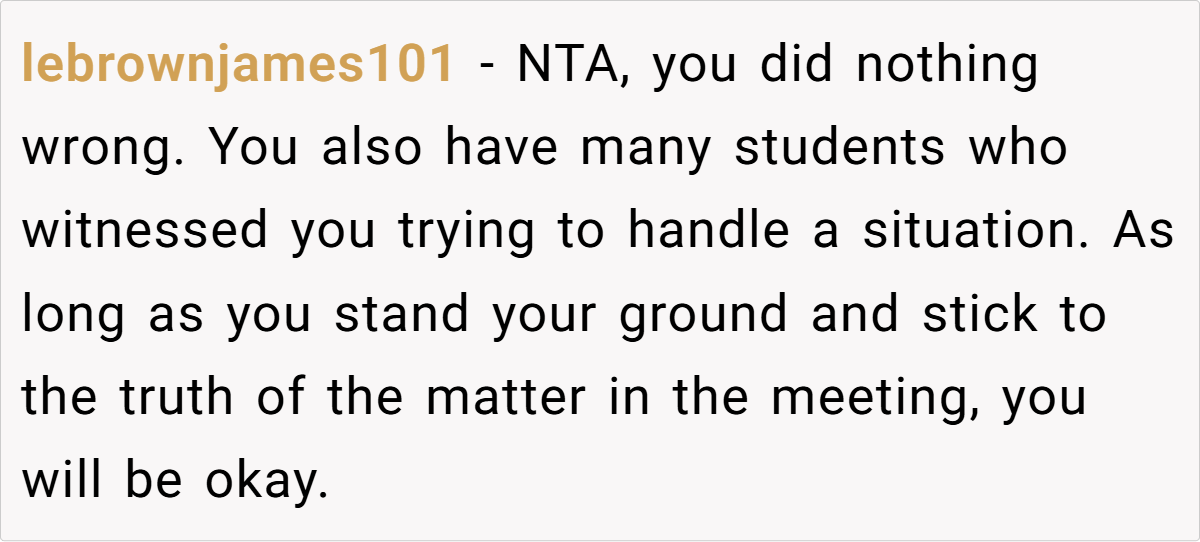

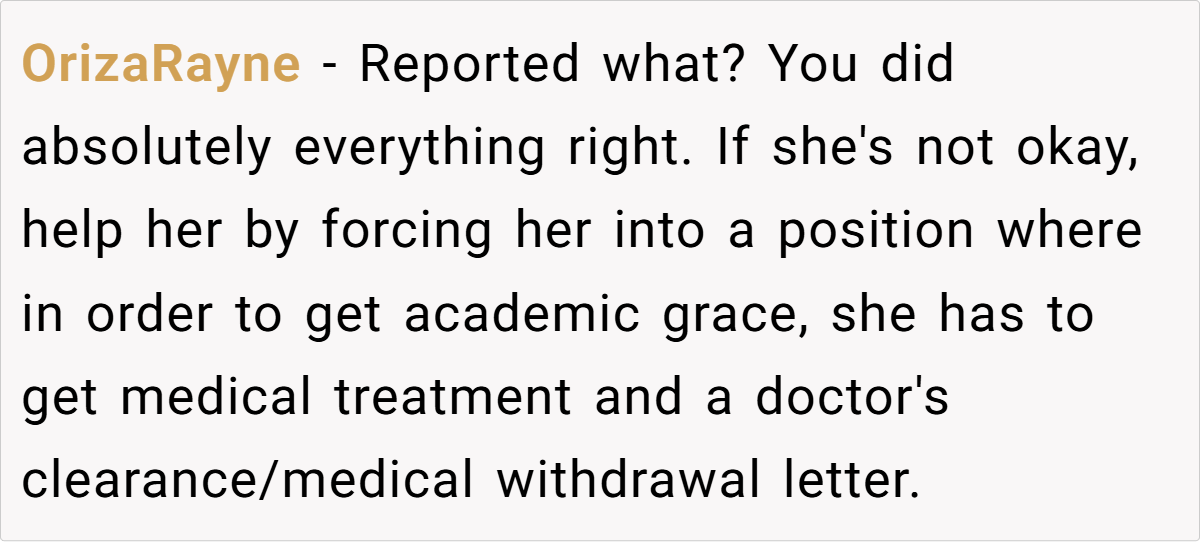


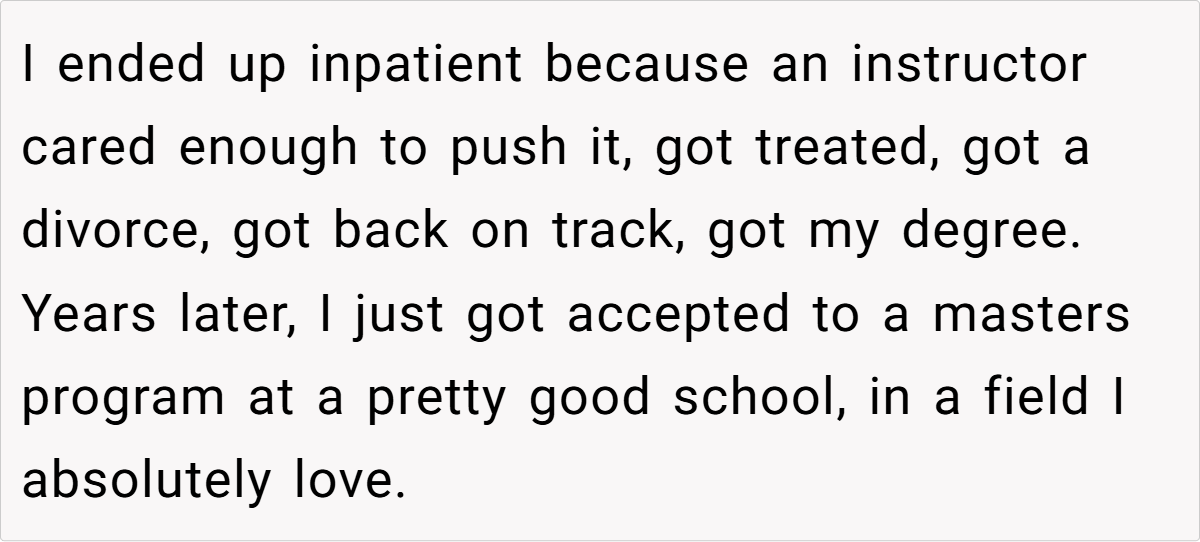
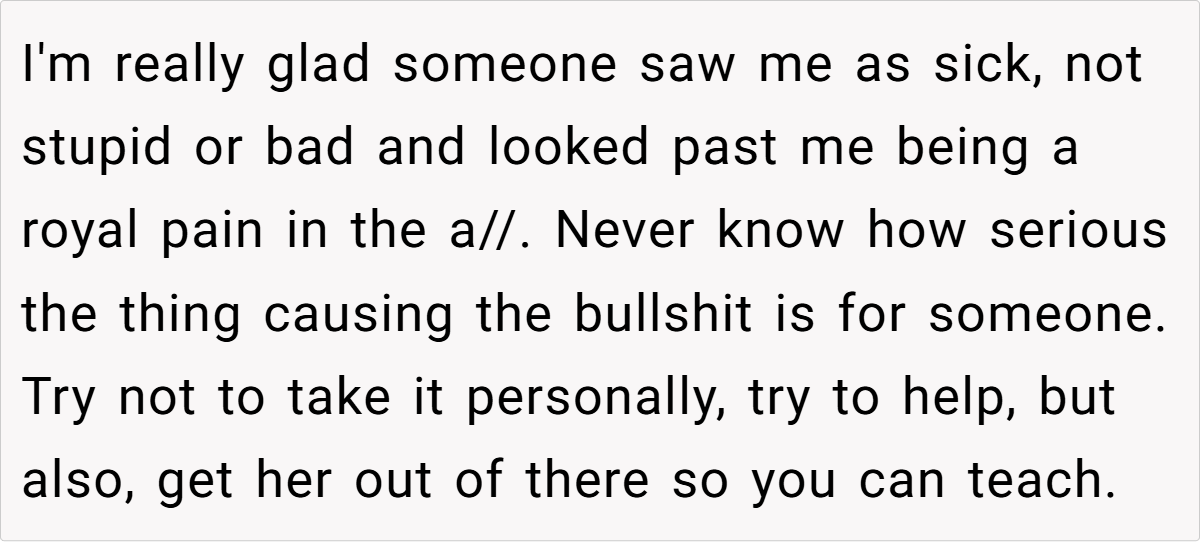


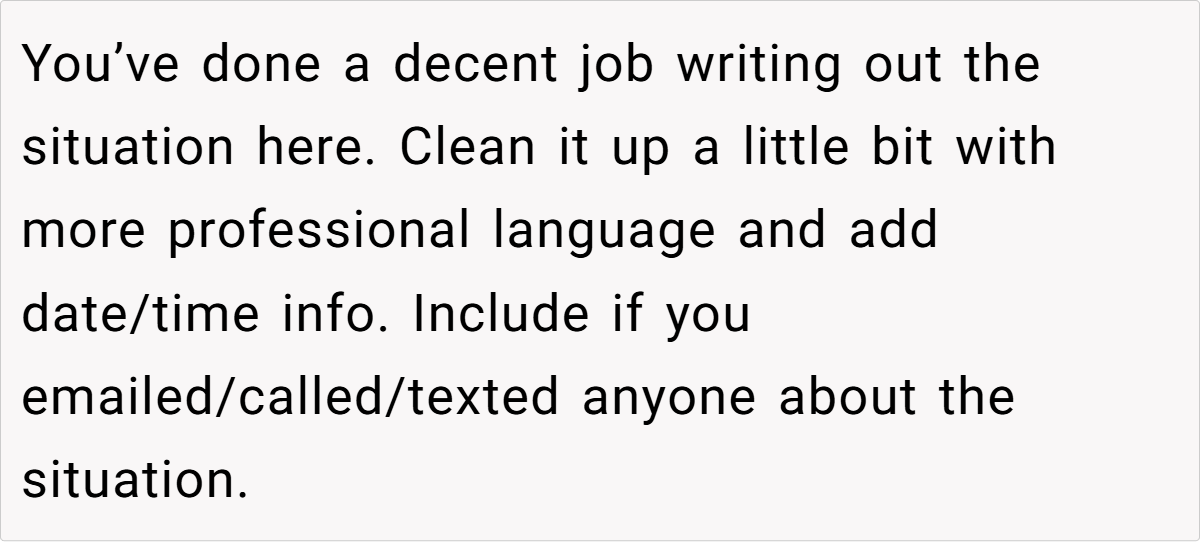
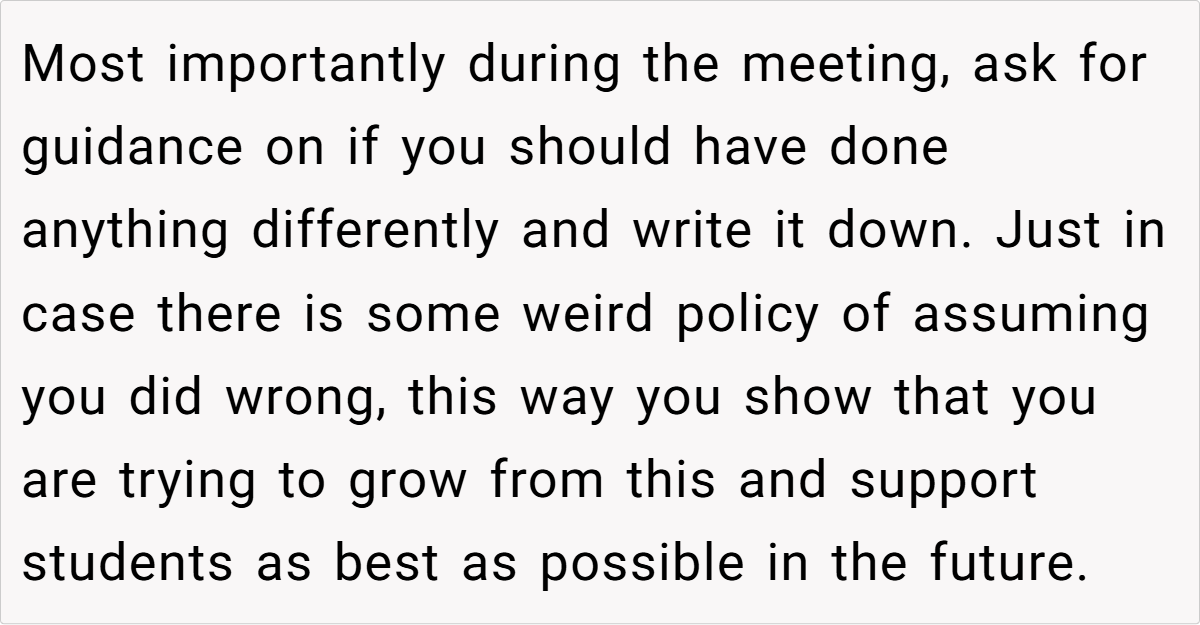
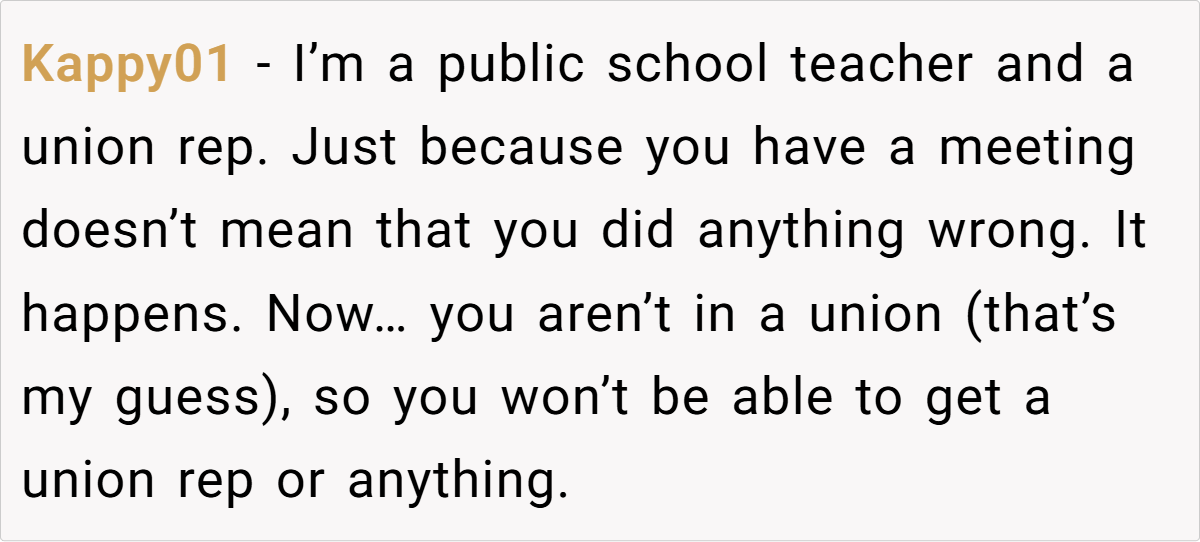




What do you think about this story? How should universities better support TAs when dealing with student mental health crises? Let’s discuss.

